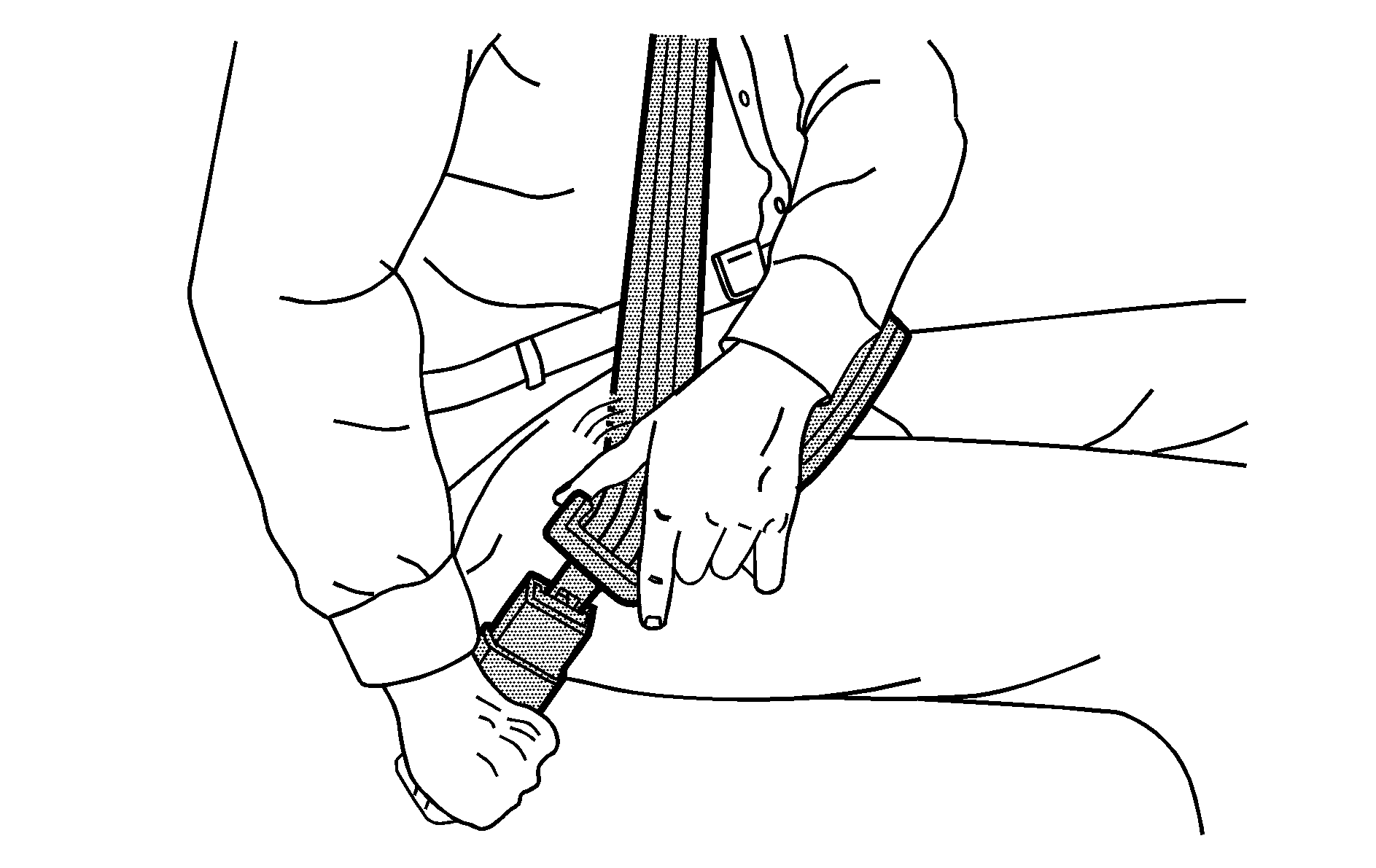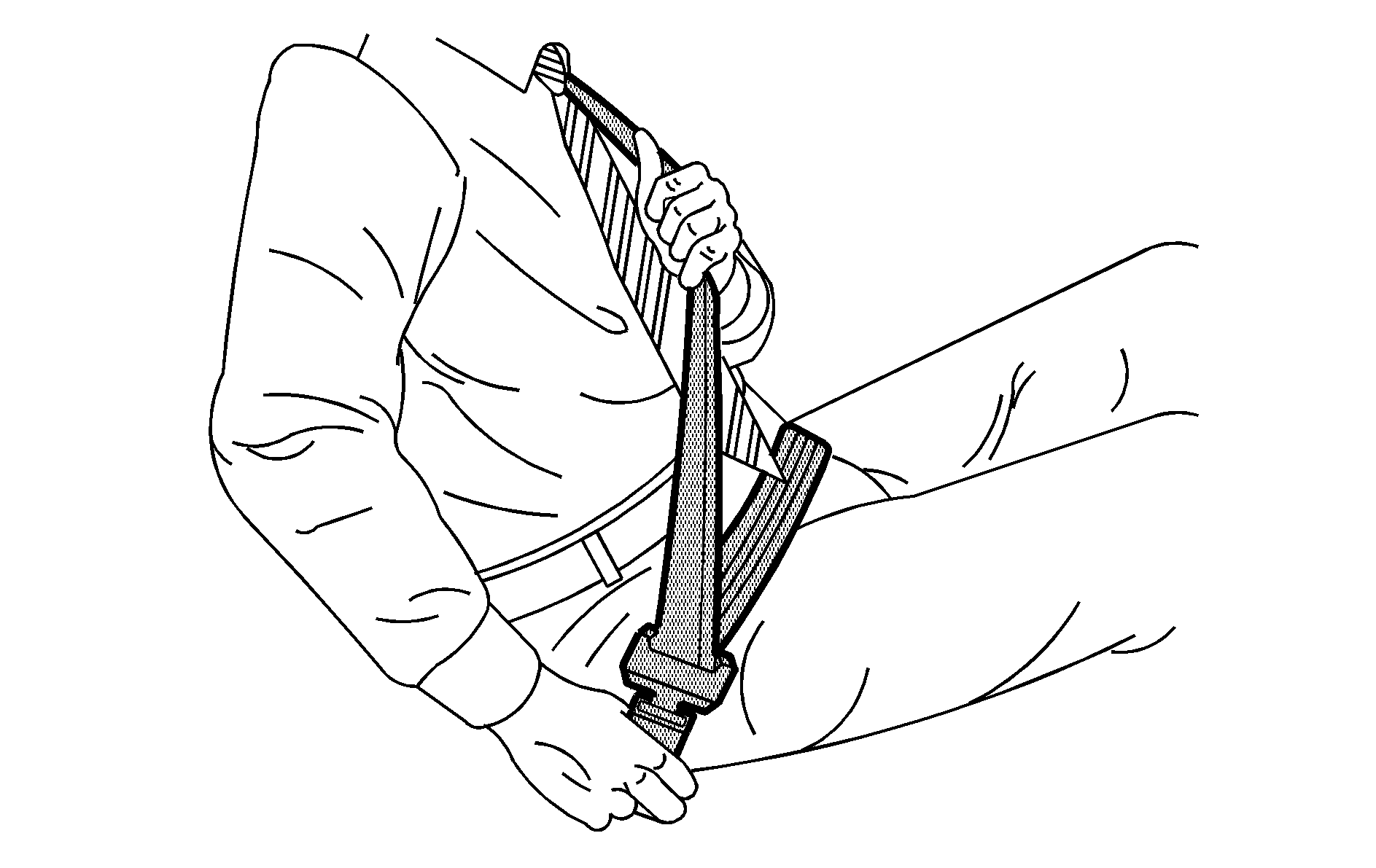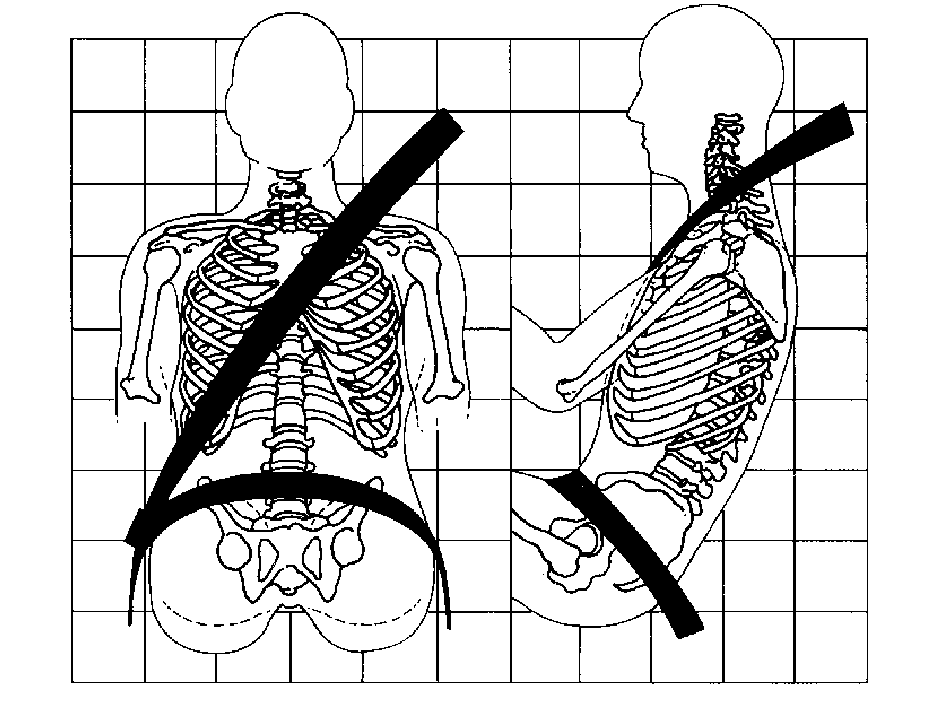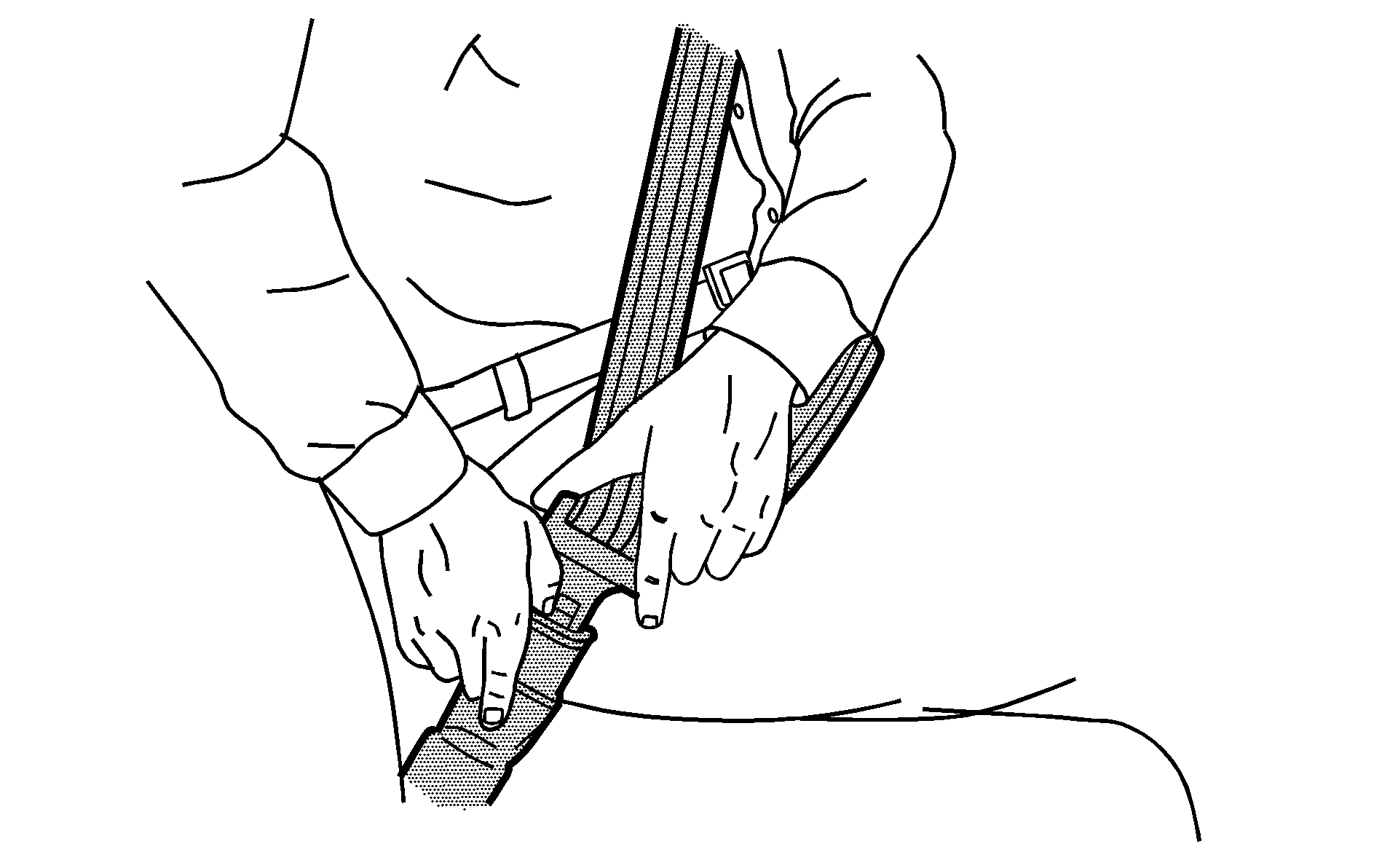It is very important for rear seat passengers to buckle up! Accident statistics show that unbelted people in the rear seat are hurt more often in crashes than those who are wearing safety belts.
Rear passengers who are not safety belted can be thrown out of the vehicle in a crash. And they can strike others in the vehicle who are wearing safety belts.
Lap-Shoulder Belt
All rear seating positions have lap-shoulder belts. If you are using the center third row seating position and the safety belt is not attached, see Third Row Seats for instruction on reconnecting the safety belt to the mini-buckle.
Here is how to wear one properly.
- Pick up the latch plate and pull the belt across you. Do not let it get twisted.
- Push the latch plate into the buckle until it clicks. Pull up on the latch plate to make sure it is secure.
- To make the lap part tight, pull up on the shoulder part.

The shoulder belt may lock if you pull the belt across you very quickly. If this happens, let the belt go back slightly to unlock it. Then pull the belt across you more slowly.
When the shoulder belt is pulled out all the way, it will lock. If it does, let it go back all the way and start again.
If the belt is not long enough, see Safety Belt Extender .
Make sure the release button on the buckle is positioned so you would be able to unbuckle the safety belt quickly if you ever had to.

It may be necessary to pull stitching on the safety belt through the latch plate to fully tighten the lap belt on smaller occupants.

The lap part of the belt should be worn low and snug on the hips, just touching the thighs. In a crash, this applies force to the strong pelvic bones. And you would be less likely to slide under the lap belt. If you slid under it, the belt would apply force at your abdomen. This could cause serious or even fatal injuries. The shoulder belt should go over the shoulder and across the chest. These parts of the body are best able to take belt restraining forces.
The safety belt locks if there is a sudden stop or a crash.
Caution: You can be seriously hurt if your shoulder belt is too loose. In a crash, you would move forward too much, which could increase injury. The shoulder belt should fit snugly against your body.

To unlatch the belt, push the button on the buckle. For outboard seating positions, when the safety belt is not in use, slide the latch plate up the safety belt webbing. The latch plate should rest on the stitching on the safety belt, near the guide loop on the side wall.
